As the year 2021 draws to an end, it is a good time to write about In Search of Lost Time. I found a graphic novel adaptation of it and bought it for my fortieth birthday. The title seemed quite apt.
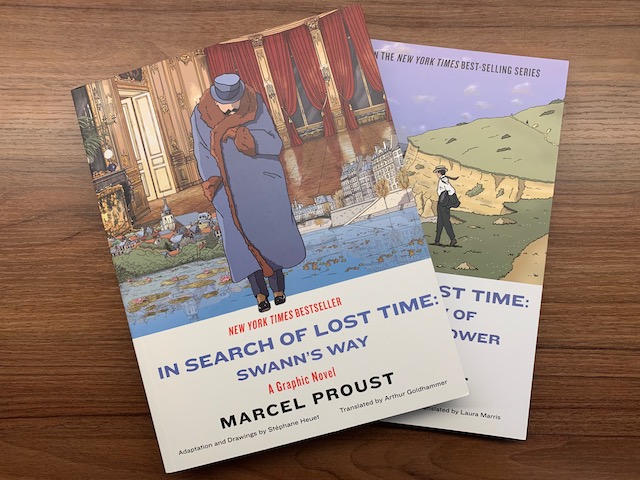
In everyone’s life there comes a time… when the ears can no longer listen to any music but that which the moonlight plays on the flute of silence.
I came to Proust indirectly. I first read Alain de Botton’s book titled, quite emphatically, How Proust Can Change Your Life. Yet I was (am) not bold enough to read the largest novel in literature1. Thus, when I saw the graphic novel, I quite jumped at it, although it only covers the first two volumes yet in English. The illustrations are by Stephane Heuet.
Proust today would probably be dubbed a “highly sensitive person”2: he seems to sense and feel everything so deeply. This is probably the biggest reason to read Proust. He enriches the world for you and makes you his companion in this world.
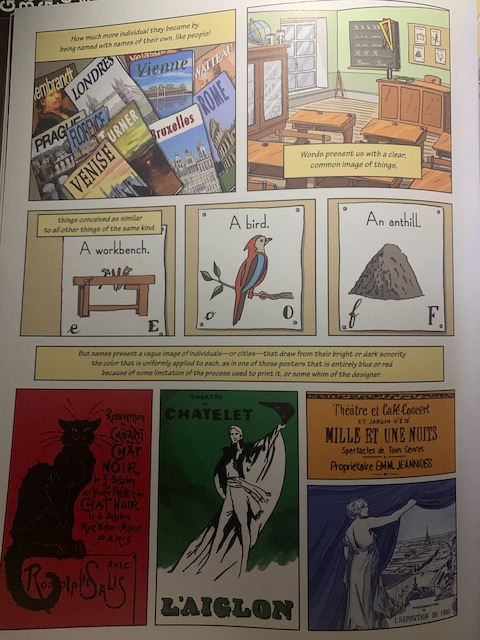
I think Proust is not really big on story-line, at least in the traditional sense of the word. What I found instead were several themes in the novel.
Yearning and Disappointment
Alas! In the freshest flower, one can make out the faintest points which reveal, to the trained eye, what will become the immutable and already predestined form of the seed. … One had only to see these young girls next to a mother or an aunt to measure the distances their features, swayed by some inward force that follows a frightful type, would travel in less than thirty years.
When the novel begins, the narrator recalls that, as a little boy, he yearned for his mother to be with him as he went to bed. His mother was busy, but he lay awake on bed for her, and ultimately when she did come, she was tired, he seemed clingy, his father was irritated, and ultimately his experience was ruined.
The significance of this beginning became evident only as I continued to read the book. This pattern of longing and yearning for something, but having a bad experience upon getting it in the end is I think central to this novel, and it appears many other times. We see not only yearning for love, but also social status, even geographical places. The narrator and his characters build rich imaginations and expectations, but reality knows no hurry nor generosity. The result is disappointment, regret, resignation.
To think that I wasted years of my life, that I wanted to die, and that I experienced my greatest love, for a woman who didn’t appeal to me, who wasn’t my type.
Swann is the prototype of an intellectual, yet he gets drawn to a woman with no taste or inclinaton for the sublime. We then see jealousy and possessiveness in the so-called intellectual, and it takes a long time to recognize that he has not loved someone to his taste. The Guermantes are “high society”, rich and influential, yet they seem to have no intellect or taste for the arts. Proust seems to suggest that both “Swann’s Way” and “Guermantes Way” are tempting to strive for, but can not lead to meaning.
The second volume is full of beautiful imagery and evocative passages about adolescence, as the young narrator falls for a young girl by name Albertine although again not to any measure of success.
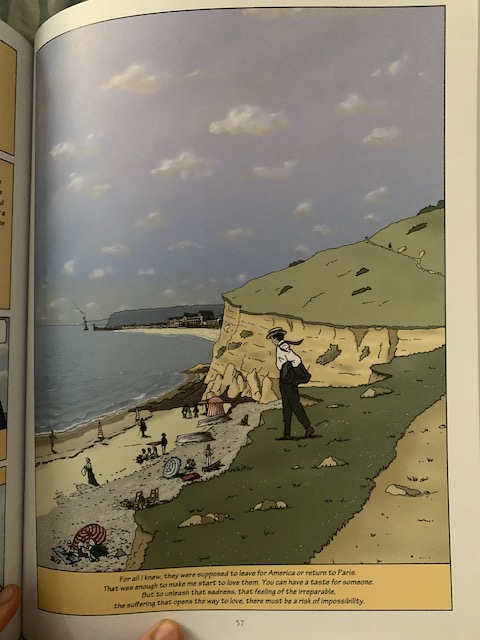
Nature of Time and Memory
I was trapped in the present, as heroes are, as drunks are; my past was temporarily eclipsed, no longer projecting before me the shadow of itself that we call our future.
Most people connect Proust to a famous madeleine scene. It appears early in the novel, when the aroma of a madeleine brings back memories that Proust didn’t know he had.3

The story gives us a sense of how irrational and unreal our memories are, and how our imagination constantly plays tricks on us. This is in a time before Freud, but Proust is clearly aware of a subconscious mind. The novel itself is by a narrator looking back on his childhood and talking about how he yearned for something in the future at that point in time, but not at the time of writing the novel. Who is to say if his feelings were really felt as recalled?
The places we have known do not belong only to the spatial world in which we conveniently place them: the memory of a particular image is merely the longing for a certain moment.
Appreciation for Beauty
Faced with her, I felt a desire for life that is reborn in us each time we rediscover beauty and happiness.
As I mentioned before, it seems Proust experiences everything more intensely. He notices and appreciates many varieties of beauty: music, paintings, a cathedral, a park, coastline, and of course, flowers and young women. Sometimes there is a wistfulness, as when he sees the beautiful young girls and thinks about how their beauty won’t last.
People and Personalities
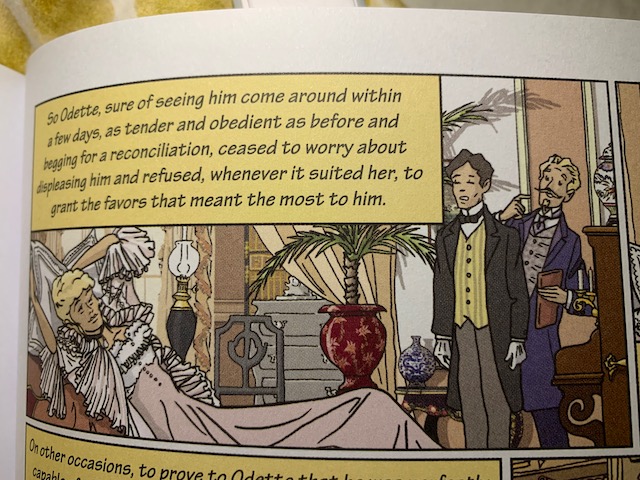
The novel has many people and come and go. Proust’s descriptions seem surgical, stemming from an acute sense of observation. They are candid but also somewhat detached: it seems Proust is well-aware that personalities are hard to change.
In short, my aunt insisted that you approve her diet, pity her suffering, and reassure her about the future. Eulalie [her maid servant] excelled at this.
Closing Thoughts
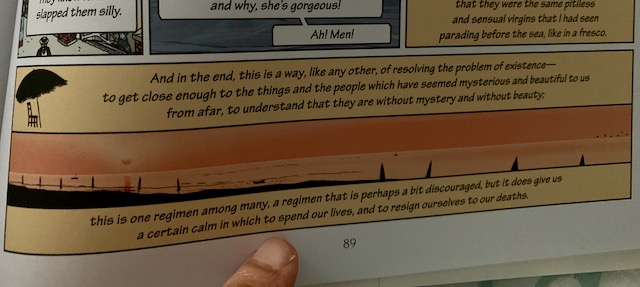
Some novels are best read when you’re older, and I think Proust falls in this category. Its wistfulness, nostalgia, regret and disappointment are not themes that may sit well with the young. But the older among us will relate to, appreciate and perhaps even immerse themselves in the rich details of this novel. I personally went on many a reverie reading it.
There are pleasures which resemble photography. What you get in the presence of the beloved is just a snapshot negative – you must develop it later, in your own home, when you are at liberty to find the dark interior room whose entrance is forbidden in social circumstances.
Where to Go Next
If you have only a few minutes, I recommend this video on Proust by Alain de Botton’s School of Life.
If you have an hour, I recommend this episode of Ten Great Writers by BBC.
If you have a week, you can read Alain de Botton’s How Proust Can Change Your Life. It was also made into a 6-part BBC series, each part running for an hour. (I have read the book, but not seen the TV series.)
Reading the graphic novel adaptation took me a month, mostly half an hour before bedtime. The hand-drawings are a beautiful complement to Proust’s language.
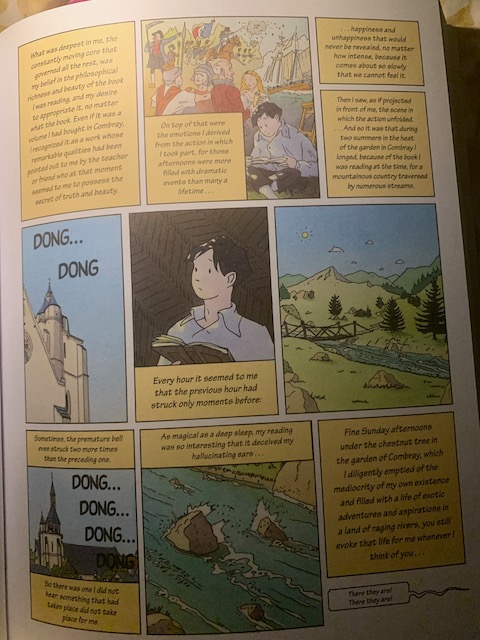
I’ve heard that to read Proust directly requires possibly a year or two. I’ve also heard that Yale University Press translations are good. I have not read Proust in original.
–
1 Guinness Book of Records: Longest Novel
2 Wikipedia: Highly sensitive person
3 I had a similar experience once in a restaurant in Chennai, when I ate a dish that brought back memories of my childhood that I had long forgotten. Such Proustian moments are quite intense.